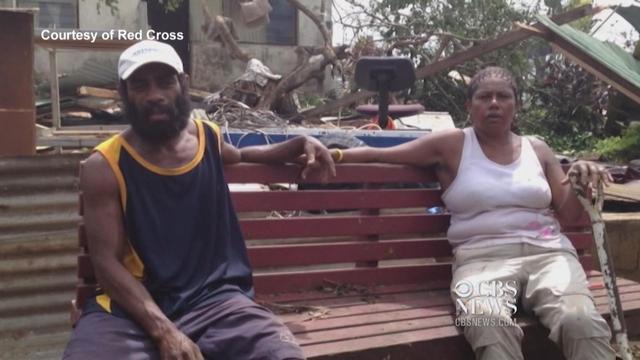▶ Watch Video: The aftermath of Cyclone Pam in Vanuatu
Vanuatu’s East Epi underwater volcano erupted Wednesday, hurtling ash into the sky and leading authorities to warn ships and aircraft to avoid the area.
“We are telling locals to watch out for any strong explosions as the eruptions are still ongoing,” senior volcano officer Ricardo William, at the meteorology and geo-hazards department, told AFP.
The department posted images of the eruption on Facebook as well as a map showing a 10-kilometer “danger zone” around the submerged volcano.
The volcano lies 68 kilometers north of the capital Port Vila.
After reports of steam over the site, the underwater volcano started belching ash up to 100 meters high early Wednesday.
Volcanic activity started shortly before 8 am, according to the local meteorology department.
Eyewitness Philip Dick, a government official, told AFP the ground started shaking and smoke above the site was visible in the early hours.
“Then the explosions began — there is still a bad smell of sulphur within the nearby villages,” he added.
Officials raised the volcano alert to the first level, meaning “minor unrest”, on a scale of one to five.
Locals on the nearby islands of Epi and Tongoa have been told to avoid the coast.
“People are advised to stay on alert… the department said in a statement.
It added that, while the Alaska-based Tsunami Warning Center had not picked up any activity in the Vanuatu region, “such eruptions have the potential to create tsunami waves.”
“People on Epi and surrounding islands are also advised to stay on alert for any large earthquake associated with the ongoing volcanic eruptions that could trigger a possible tsunami,” the department said.
The Pacific island nation was rocked by a 7.0-magnitude earthquake in early January off the largest island Espiritu Santo in the north of the archipelago.
Vanuatu sits on the “Ring of Fire,” the arc of seismic faults around the Pacific Ocean where earthquakes are common. The nation is also prone to volcano eruptions and cyclones, and has been ranked by the United Nations University as the world’s most at-risk nation for natural disasters.
In 2015, the island nation was hit by the massive Cyclone Pam. Officials say more than 90 percent of the buildings in the capital alone were destroyed, and at least a half dozen people were killed.
